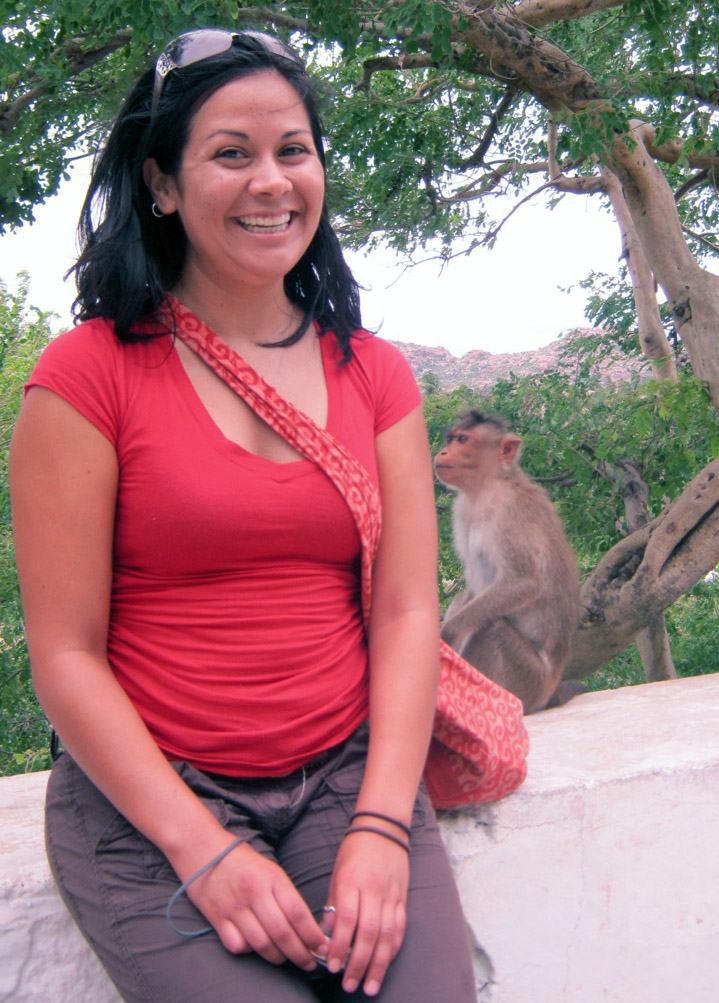We asked applicants for the NCSE Grand Canyon Teacher Scholarship to explain, in 500 words, how they’ve addressed challenges to the teaching of evolution, climate change, and related issues. Here is part of scholarship winner Crystal Davis’s description of an exercise she uses to help her inner-city high school students connect to the science of climate change, and the ways it affects people all over the world. Davis and Brandon Haught will receive an all-expenses-paid trip down the Grand Canyon, thanks to generous donations from NCSE supporters.
 In my biology class, evolution and climate change are overarching themes that we constantly touch on. I start my year with ecology, teaching students about biomes, food webs, relationships and the effect humans have on each of these. Towards the end of this unit my students mimic a research project being conducted by the San Diego Wild Animal Park on the hearing range of polar bears. They then research polar bears and current issues that affect them, keeping in mind that this needs to tie back to the hearing test. Eventually they concluded that the noise from oil drilling affects the polar bear moms nursing. Students are then given identities to assume, such as American citizen, oil baron, politician, IPCC member, environmentalist, etc. They then determine how "they" are affected and split into community groups where they decide what to do about drilling in Arctic National Wildlife Refuge. This activity gets them thinking about the various sides of the issue and leads them into climate change as they discover more about this issue as they conduct their research.
In my biology class, evolution and climate change are overarching themes that we constantly touch on. I start my year with ecology, teaching students about biomes, food webs, relationships and the effect humans have on each of these. Towards the end of this unit my students mimic a research project being conducted by the San Diego Wild Animal Park on the hearing range of polar bears. They then research polar bears and current issues that affect them, keeping in mind that this needs to tie back to the hearing test. Eventually they concluded that the noise from oil drilling affects the polar bear moms nursing. Students are then given identities to assume, such as American citizen, oil baron, politician, IPCC member, environmentalist, etc. They then determine how "they" are affected and split into community groups where they decide what to do about drilling in Arctic National Wildlife Refuge. This activity gets them thinking about the various sides of the issue and leads them into climate change as they discover more about this issue as they conduct their research.
I have another activity where they examine the evolution of stickleback fish in the Arctic (by analyzing the fossil record) and look at what caused its evolution over time. They then see if there is any evidence of climate change or current human activities that might impact its evolution. These are only a few examples of how I integrate evolution and climate change into my classroom, but they are themes that are continually touched on throughout the year. It is my goal to come up with memorable activities that give my students a sense of ownership over their knowledge. I don’t want to tell my students what to think about climate change, because they will simply memorize the information for an exam and promptly forget it. My lessons are designed to have my students come to their own conclusions.
Integrating both climate change and evolution is necessary. We live in a world that is rapidly changing due to human activities but most people either don’t believe in climate change or don’t believe they can do anything to change it. Yet if we sit passively by doing nothing, then we are causing the continued extinction of species and eventually ourselves. Therefore it is my goal to have my students think critically about these issues and believe that they can do something about them. Although their journey begins in my classroom, they will share it with their friends, family and out into the world.
